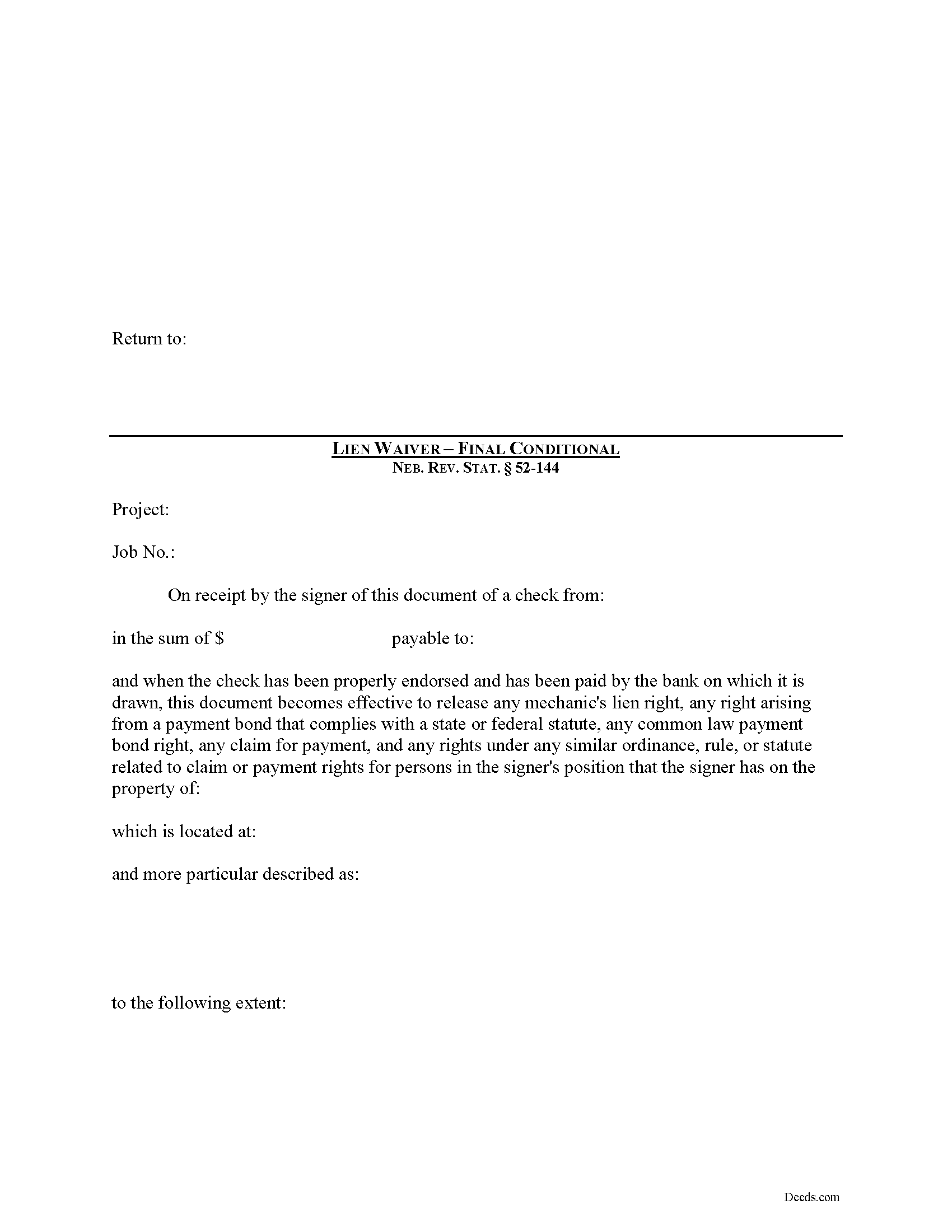Download Nebraska Final Conditional Lien Waiver Legal Forms

Nebraska Final Conditional Lien Waiver Overview

Construction liens are governed under the Nebraska Construction Lien Act, found at Sections 52-125 to 52-159 of the Nebraska Revised Statutes.
The term "waiver" means a voluntary surrender of a legal right. In this case, the person granting the waiver gives up the right to seek a construction lien for all or part of the amount due on an improvement to real property. This assurance is often enough to encourage the other party to pay the outstanding debt.
As set forth by Neb. Rev. Stat. 52-144(2), a written waiver relinquishes all construction lien rights of the claimant as to the improvement to which the waiver relates unless the waiver is specifically limited to a particular lien right or a particular portion of the services or materials furnished. A waiver of lien rights does not affect any contract rights of the claimant otherwise existing. 52-144(3). Acceptance of a promissory note or other evidence of debt is not a waiver of lien rights unless the note or other instrument expressly so declares. 52-144(4).
Expanding on the statute above, Nebraska law generally recognizes four types of lien waivers. These include partial and final waivers. Each waiver can be conditional or unconditional. A partial waiver covers a progress payment and the waiver only applies to that payment amount, range of dates, or another agreed-upon checkpoint, while a final waiver covers the entire balance. If the waiver is conditional, it is only valid when the payment clears the bank or is otherwise confirmed, while unconditional waivers become effective when they are signed, regardless of payment status.
Thus, a final conditional waiver is appropriate only when a final payment is made for all money owed to the claimant for providing labor, services, materials or equipment, but payment is not immediately verifiable (meaning the check has not yet cleared or there are doubts about payment clearing the bank). This reduces some of the risk on the claimant, as the conditional nature allows some recourse if the payment fails.
A valid waiver identifies the parties, the property where the claimant performed the work or improvement, and any other information necessary for the specific situation. The claimant must sign the document in front of a notary, then submit the completed waiver to the recording office for the county where the property is situated.
This article is provided for informational purposes only and is not legal advice. Please contact an attorney with questions about lien waivers or any other issues related to Nebraska lien laws.